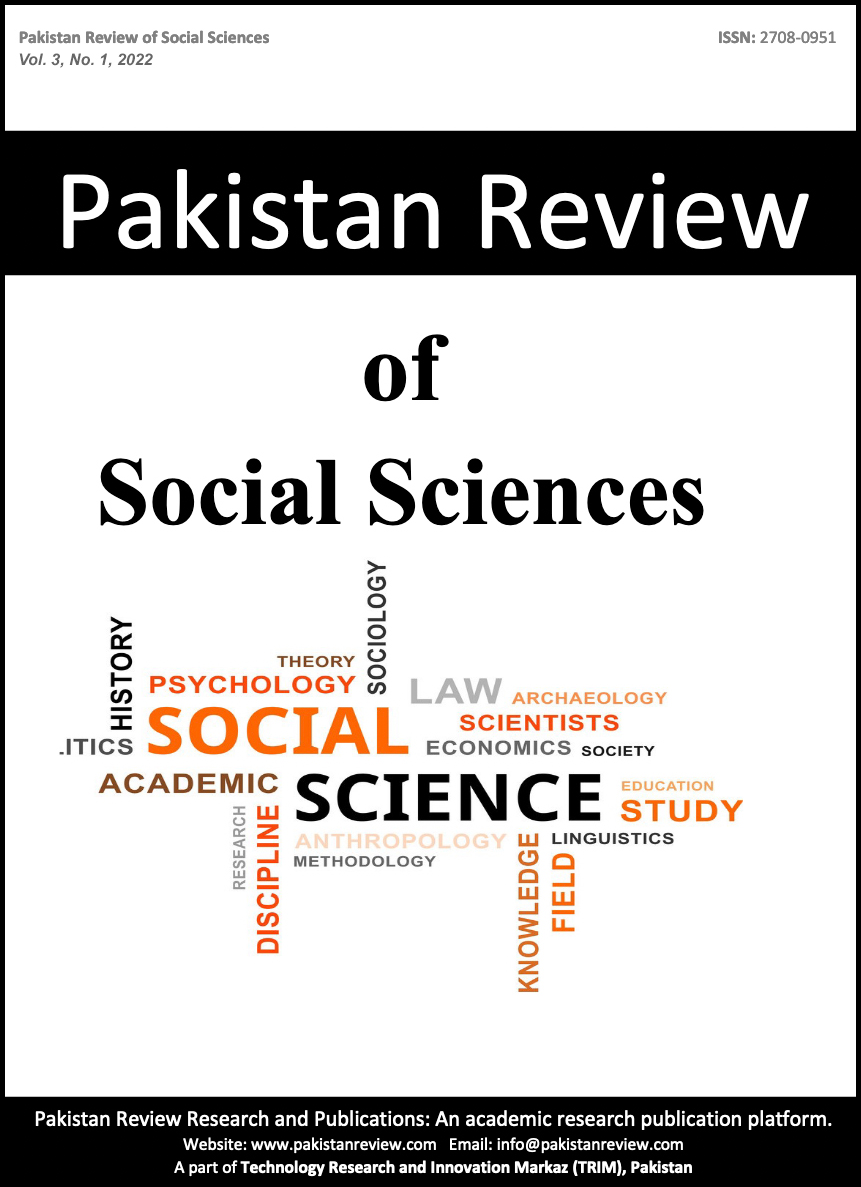Investigate the influence of multiple elements on the criminal behavior of young people in Pakistan
Keywords:
Youth crime, socio-economic factors, social influences, urban settings, policy recommendationsAbstract
One of Pakistan's biggest issue is criminality. Increasing crime rates nationwide are starting to raise serious concerns. It's widely recognized that the underprivileged section of society experiences poor social, psychological, physical, and economic situations, which are linked to criminal behavior. The main causes of young offenders in Pakistan are hunger, joblessness, and bribery. The primary goal of the current study was to look into the elements influencing young people's criminal behavior in Pakistan particularly in two metropolitan cities, Rawalpindi and Lahore. The current study concluded that highest 27% of the individuals claimed unemployment and 24% considered poverty was the primary reason of crime. 19.2% of the participants said that social media, 15.4% peer pressure, 8.0% education deficiency, and 6.4% political insecurity contributes to crime. The elements unemployment (27%) and poverty (24%) highly related to crime. Alongside this, the bivariate analysis indicated that unemployment had a significant effect on the criminal behavior of the young people with the chi-square value of (143.031) and p-value (0.017), and poverty with the chi-square value of (125.021) and p-value (0.005). In addition, the multiple linear regression showed the strong correlation between crime and unemployment, poverty, peer pressure, and social media among young people with p≤0.05 and R2= 0.735. Therefore, the study recommended that the government and non-governmental organizations, and other groups serving the general public should start adult empowerment initiatives that lead to the reduction of crimes among young people.
Downloads
Published
Issue
Section
License
Copyright (c) 2024 Syed Sabir Hussain Shah, Syed Sibtain Ahmed Rizvi

This work is licensed under a Creative Commons Attribution 4.0 International License.
Submission declaration
Authors retain the copyright to their work and grant the Pakistan Review of Social Sciences (PRSS) the right of first publication under a Creative Commons Attribution 4.0 International (CC BY 4.0) license. This license allows others to share, adapt, and reuse the work for any purpose, including commercial use, as long as appropriate credit is given to the original authors and the journal.
By submitting a manuscript, authors confirm that the work has not been published previously (except as an abstract, lecture, or academic thesis), is not under review elsewhere, and has been approved by all authors and relevant authorities. Once accepted, the article will be openly accessible under the CC BY 4.0 license, ensuring wide dissemination and reuse with proper attribution.






